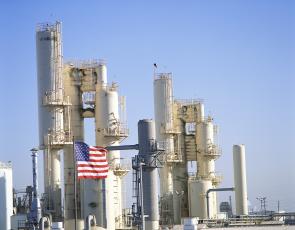WASHINGTON, D.C. – Today, the U.S. Department of Energy, Office of Fossil Energy and the U.S. Department of Transportation, Pipeline and Hazardous Materials Safety Administration formally submitted the Congressionally-mandated Sandia National Laboratories technical report on crude oil combustion properties to Congress.
In response, AFPM issued the following statement from Rob Benedict, Senior Director, Petrochemicals, Transportation and Infrastructure at AFPM:
“The Sandia report confirms that the Vapor Pressure (VP) of crude in rail transport has no impact on the consequences of a derailment, and that the results of the Sandia study do not support creating a new regulatory distinction for crude oils based on vapor pressure.
These findings, based on three years of extensive study, further demonstrate that DOT/PHMSA should rescind its open rulemaking to set a nationwide VP standard and that the state of Washington’s unlawful attempt to regulate the transportation of crude oil based on VP is flawed and does not enhance rail safety. Such unnecessary regulation would increase costs for a U.S. energy sector that is already facing tremendous challenges due to COVID-19 and would not improve safety. Though efforts at the federal and state level to implement vapor pressure limits have always lacked the scientific evidence to support such an action, the findings of the Sandia study confirm that such an action has no basis in sound science. To address the root cause of derailments that release hazardous materials, DOT must refocus its efforts on improving track integrity and reducing human error in rail operations.”


